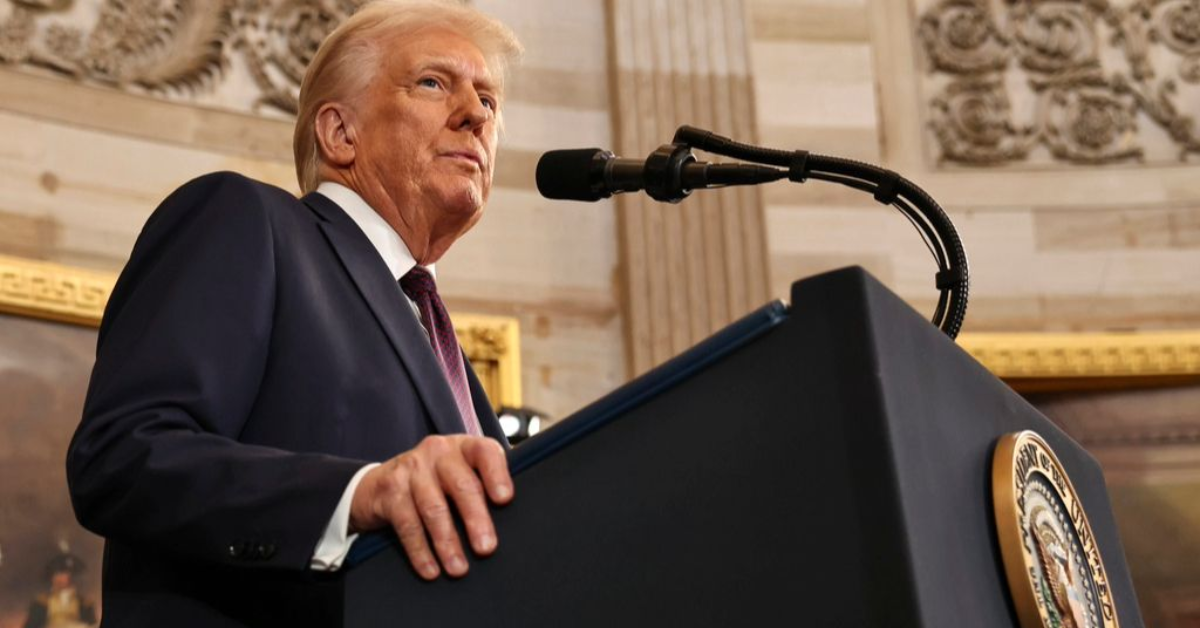There is a growing debate in Washington about plans that may change how Medicaid works for millions of Americans. While many issues are being discussed, one topic that has not received enough attention is the idea of cutting Medicaid funding. Medicaid is a vital program that helps children, new mothers, people with disabilities, and seniors get the health care they need, and any change could have serious consequences for these groups.
Dr. Aaron E. Carroll, the president of AcademyHealth, a health policy organization, recently expressed his worries in an essay published in the New York Times on February 2. He explained that some Republican lawmakers are seriously discussing a plan to pay for the Trump administration’s tax cuts by making deep cuts to Medicaid.
These tax cuts, which were approved in 2017, will cost the nation about $4 trillion over the next decade. According to Dr. Carroll, the idea is to balance the cost of these tax cuts by reducing spending on Medicaid—a move that could hurt millions of vulnerable Americans.
Dr. Carroll clearly states that this plan would come at the expense of the poor and the middle class. He points out that cutting Medicaid would take away important health care coverage from children, new mothers, people with disabilities, and seniors.
In his view, these groups, which make up more than 75 percent of Medicaid spending, would suffer the most if the program’s funding is reduced. The debate is not just about numbers or budgets. It is about the real-life impact on families and individuals who depend on Medicaid to stay healthy and safe.
A report from the Center on Budget and Policy Priorities adds more weight to these concerns. One idea under discussion is to impose work requirements for Medicaid recipients. According to the report, nearly two-thirds of Medicaid recipients currently work either full-time or part-time.

Only about 2 percent of these recipients are unemployed simply because they cannot find a job. However, if work requirements are introduced, up to 36 million people across the country could lose their coverage. In North Carolina alone, anywhere from 17 to 32 percent of Medicaid enrollees might face the risk of losing their health care benefits under these new rules.
For many families, Medicaid is not just a program—it is a safety net that covers basic health care needs and protects them from the high cost of medical bills. When lawmakers discuss cutting Medicaid, they are not only talking about saving money.
They are also talking about potentially leaving millions of people without the support they need for regular doctor visits, vaccinations, and treatments for chronic conditions. Without Medicaid, children may miss out on essential immunizations, new mothers might not get the postnatal care they need, and seniors or people with disabilities could be left without necessary treatments to manage their health issues.
The proposed cuts to Medicaid also bring up important questions about fairness and the role of government in protecting its citizens. The plan to use Medicaid cuts to pay for tax breaks has raised doubts among experts who worry about the long-term effects on the country’s most vulnerable populations.
Critics argue that these proposals are driven more by political goals than by a genuine desire to create a fair and balanced budget. They see the cuts as a way for Republican leaders to fulfill their promise of tax cuts without having to make equally difficult decisions in other areas of the budget.
The potential impact on states like North Carolina is especially concerning. In North Carolina, a large number of families depend on Medicaid for their everyday health care needs. If Medicaid funding is cut, thousands of families could suddenly find themselves without access to the medical services they rely on.
This could lead to an increase in untreated illnesses and more emergency room visits, which in turn could put even more pressure on state hospitals and health care systems. Many worry that the benefits of Medicaid, which include preventative care and early treatment of diseases, would be lost if cuts were made.
The debate over Medicaid cuts is not just about economics or budget balancing. It is about the real cost to the people who depend on this program for their health and well-being. The discussions coming from Washington have significant implications for millions of Americans, particularly those who are already struggling financially.
The idea of slashing Medicaid raises the question of who will bear the cost of these cuts. According to Dr. Carroll and many other experts, it is the poor and middle-class citizens—especially children, seniors, and people with disabilities—who will pay the highest price.
As the debate continues, many voices are urging lawmakers to think carefully about the long-term effects of cutting Medicaid. They remind us that decisions made in Washington have a direct impact on the lives of millions of people.
It is important that any changes to Medicaid be made with the full understanding of how they will affect those who rely on the program the most. Health care is not just a budget line item; it is a matter of life and well-being for countless families across the country.
In summary, the proposed Medicaid cuts being discussed in Washington are a cause for deep concern. These cuts, which are being considered as a way to pay for massive tax cuts, could leave millions of Americans without the health care they need.
The risks are especially high for vulnerable groups such as children, new mothers, seniors, and people with disabilities. As this debate unfolds, it is crucial that policymakers and the public alike keep in mind the real-life consequences of these proposals and work together to protect the health care safety net that millions depend on.
Disclaimer: This article has been meticulously fact-checked by our team to ensure accuracy and uphold transparency. We strive to deliver trustworthy and dependable content to our readers.

